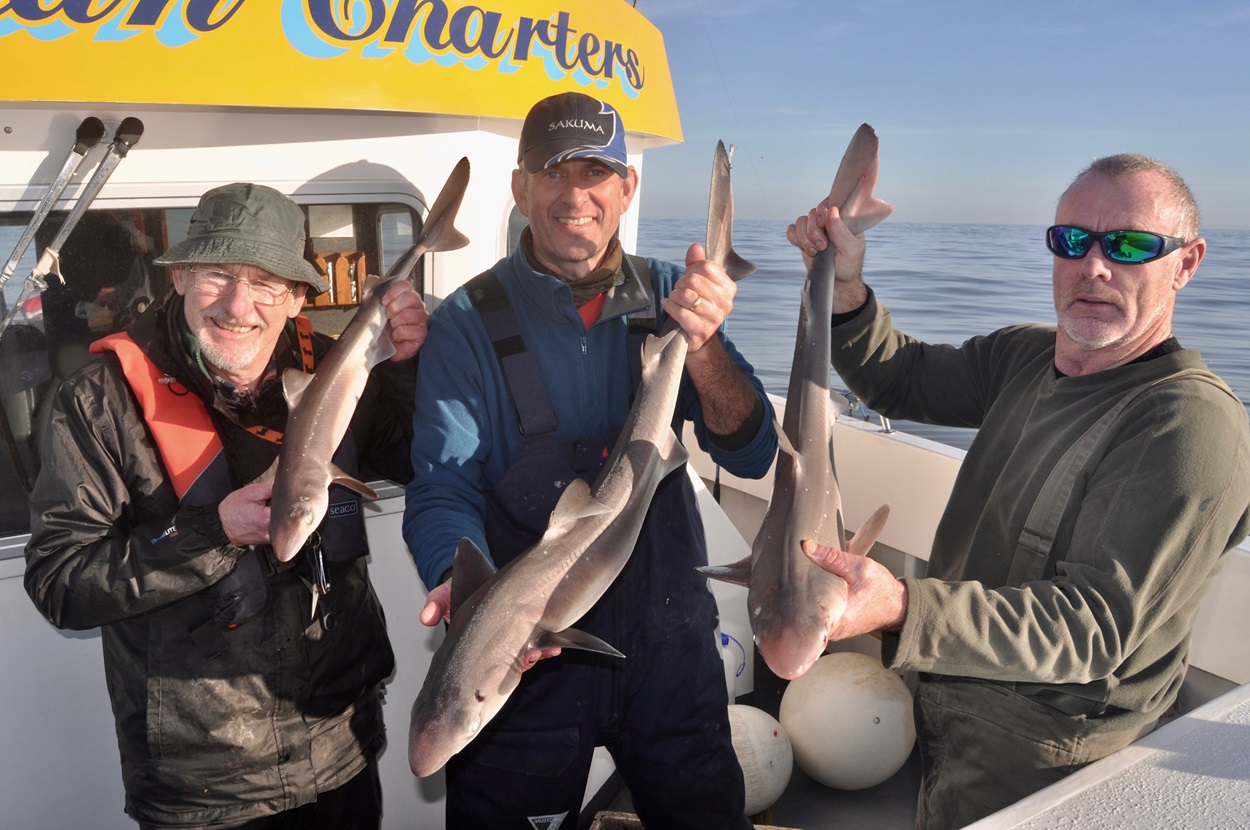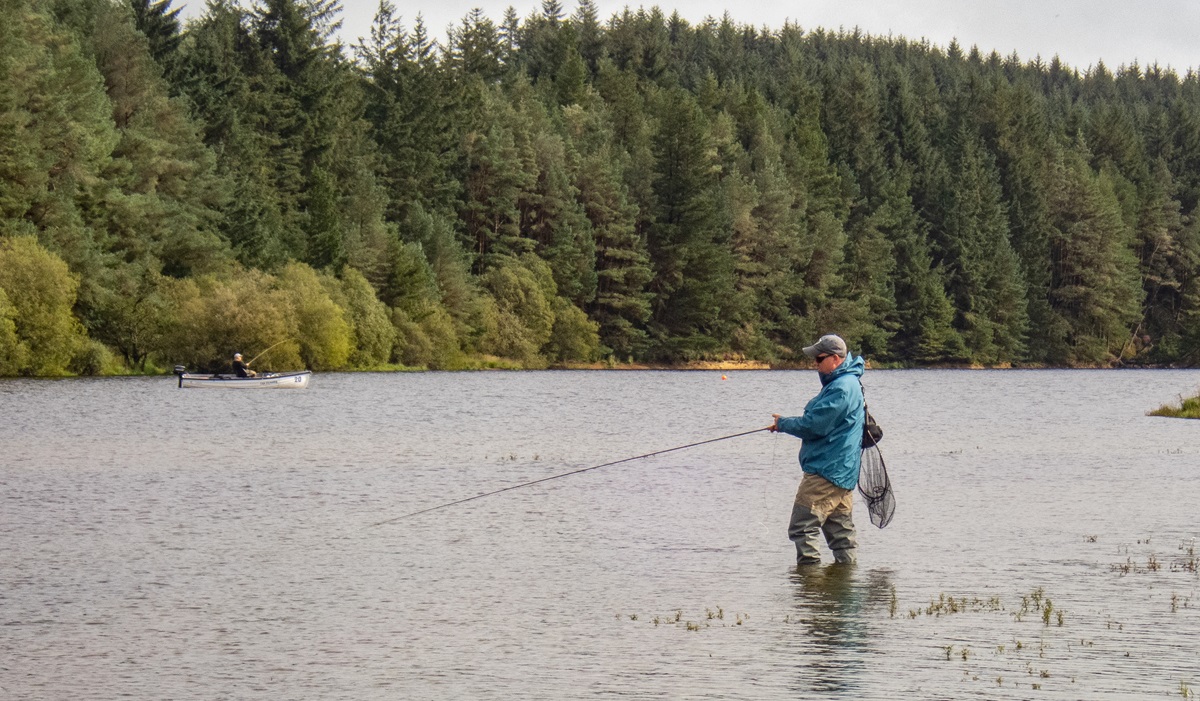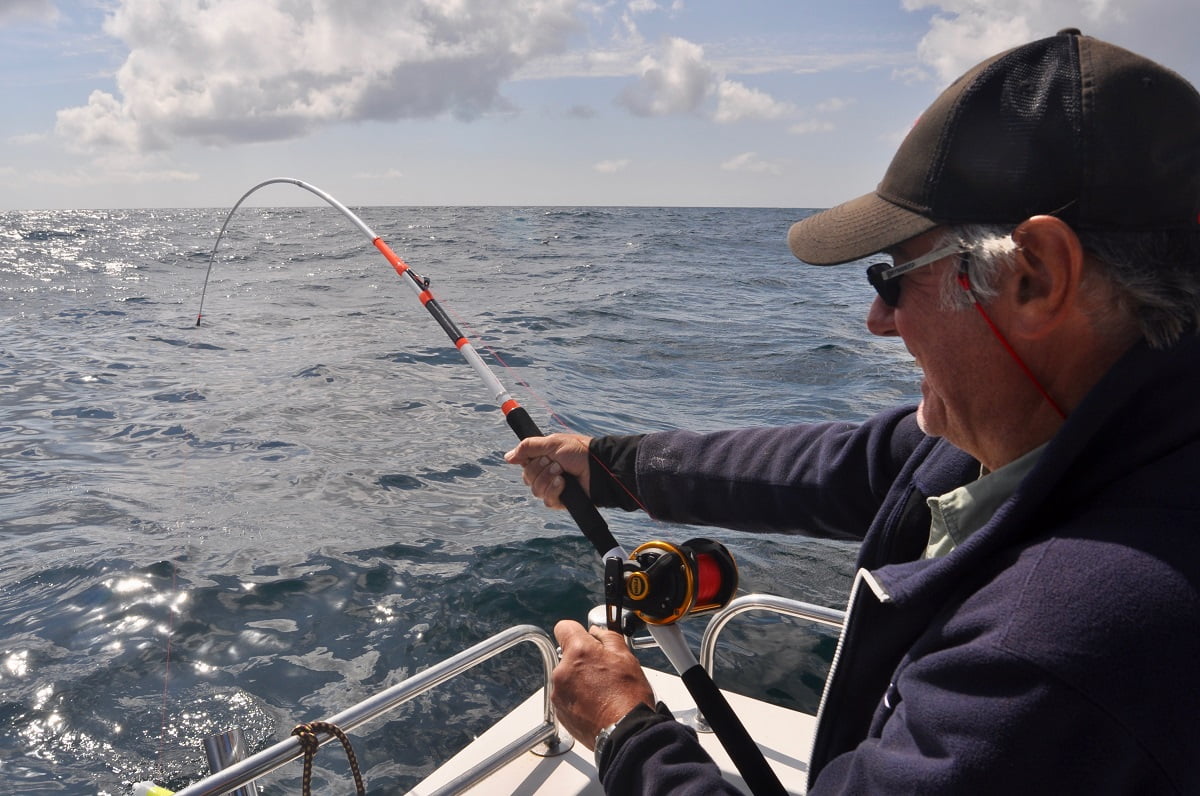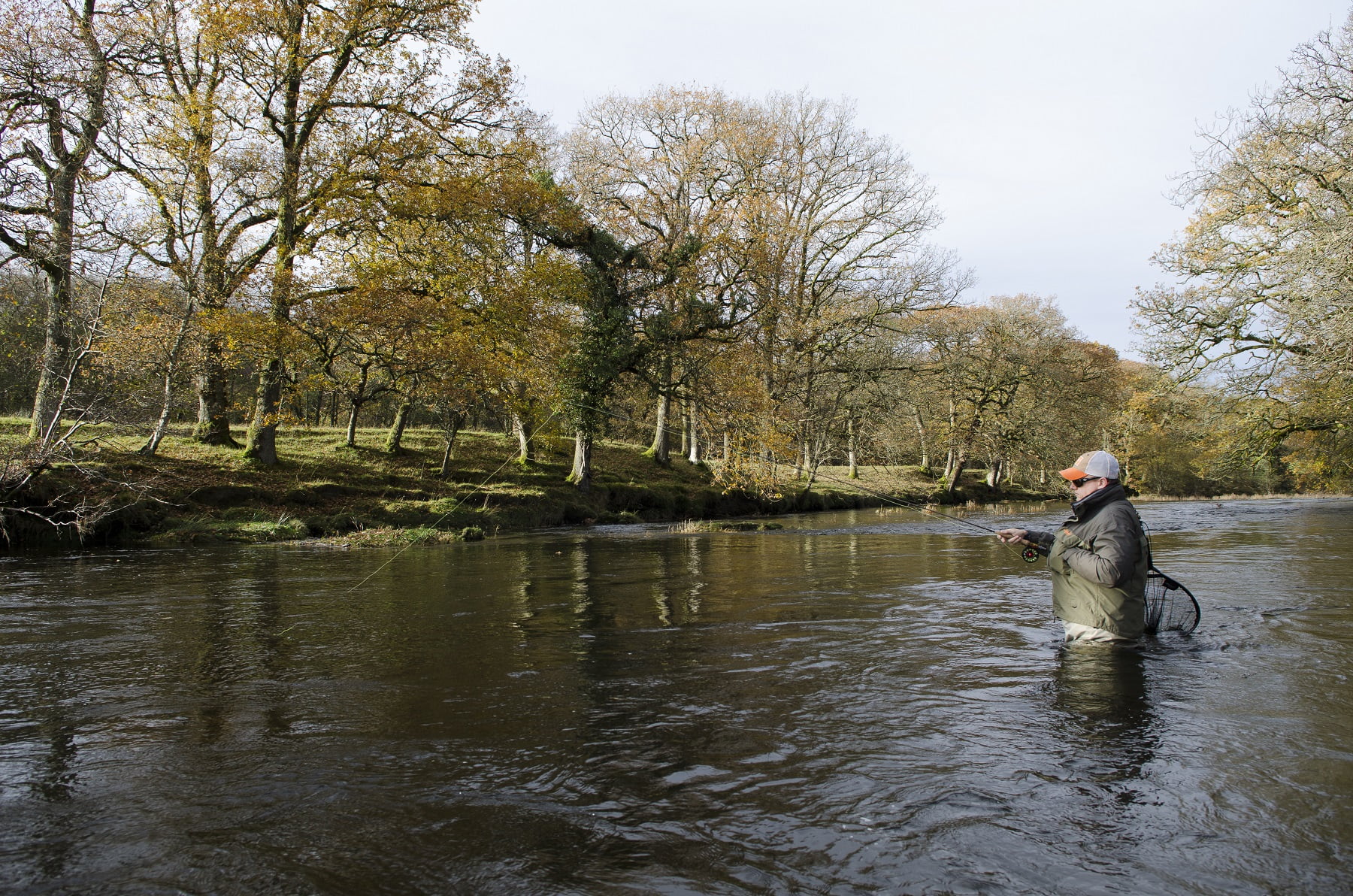Offshore Boat Angling For Winter Species
Dave Lewis reports on fishing deep water marks in mid-winter, for a variety of hardy marine species.
“The Mongrels’, that’s how Clive Gammon used to describe them! I’m talking about the various species of fish we are going to look at in this blog, ugly fish, fish adorned with sharp spikes and spines, fish with skin as rough as sandpaper or covered in slime, fish with sharp teeth.
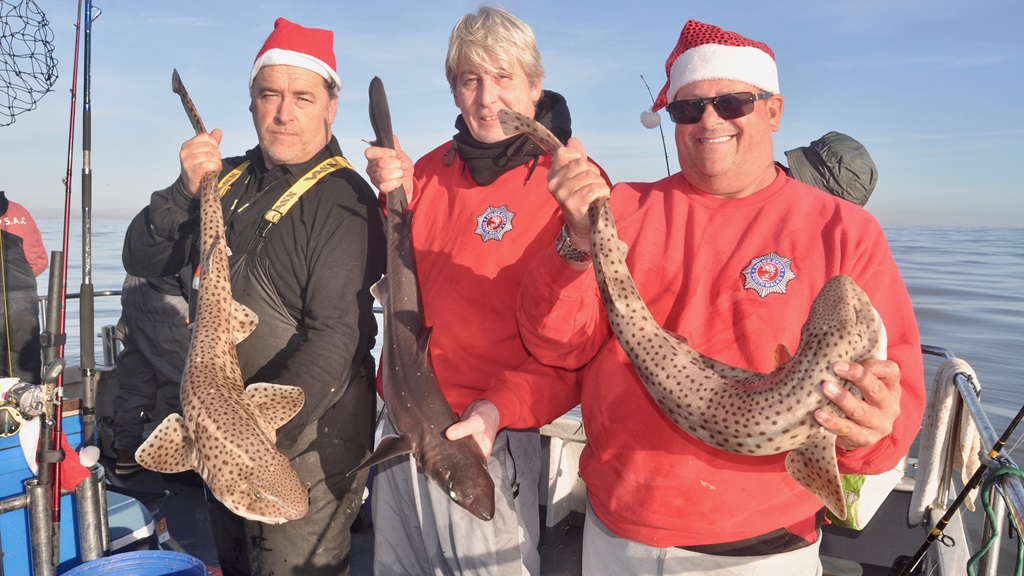
Certainly ‘The Mongrels’ are species of fish that need handling with great care. Clive Gammon was, in the opinion of many, the greatest angling writer this country has ever produced. A proud Welshman, throughout his life Clive traveled and fished virtually everywhere around the globe, in the process catching many of the world’s great glamour species of fish.
But Clive was never happier than when fishing in Wales. And guess what, as much as he used to berate the various species of ray, huss, conger and dogfish I am going to focus on here, on many an occasion when I fished with him I detected more than just the hint of a smile on his face whenever ever he boated a ‘Mongrel’!
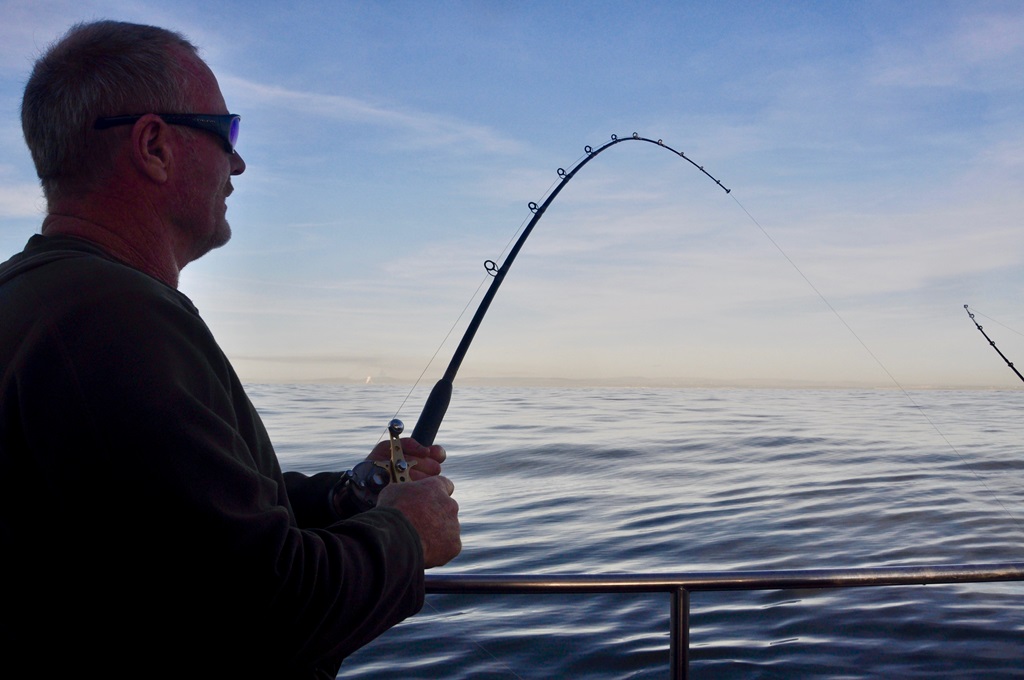
Most other sea anglers are not so critical of the fish they catch. Both boat and shore anglers love catching big fish, and most of these species, that is conger eels, bull huss, spurdog, thornback, small-eyed and blonde rays are commonly caught at weights well in excess of 10lb in Welsh waters, even indeed especially in the frigid depths of winter.
With the single exception of spurdogs, throughout the warmer months of the year these fish can all be successfully targeted close to and even from the shore throughout Wales. Then as the sea temperatures drop throughout the winter months, they migrate into deeper water where conditions are more stable. And it is here that they are joined by vast packs of spurdog which arrive off the coast of Wales.
All of these species feed voraciously, and those boat anglers who are prepared to venture that little further offshore and anchor in depths of 100ft or more can expect truly incredible sport.
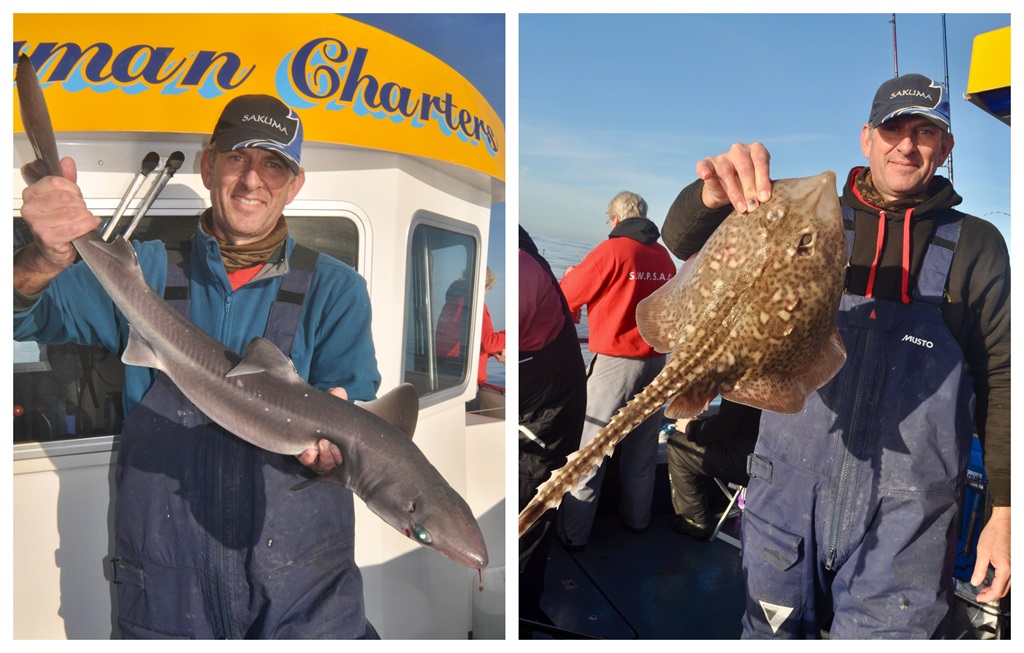
On many days the action can be non-stop from fish that are guaranteed to put a healthy bend in your rod. We are talking about true bread and butter no frills boat angling, and provided you have a bait on the seabed you are going to catch plenty of fish.
Choice of bait is straight forward too, fish baits, baits that are rich in oil such as mackerel, herring or blueys are perfect, along with another essential, frozen squid. You’ll be using large baits, and almost certainly you’ll be using a lot of it. Thankfully compared to most other sea fishing baits these are readily available and affordable, especially when bought in bulk.
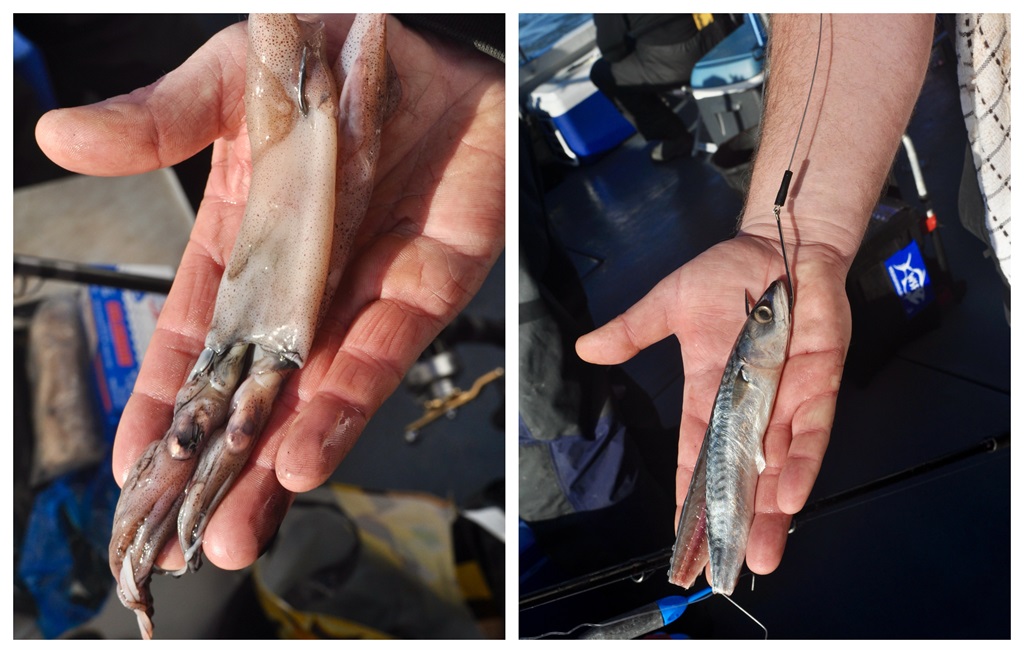
Your choice of terminal rig is equally straight forward, all you need is a straight forward running leger. Slide a boom or even a basic link swivel onto your leader to hold the lead, followed by a bead. Tie a strong swivel at the end of the leader. The bead helps prevent the end of the boom from jamming against the end of the leader, or damaging the knot.
The hooklength is attached to the other end of this swivel. You’ll need 4-6ft of strong monofilament, at least 80-100lb BS which is necessary to deal with the teeth and strong crushing jaws of the fish you’ll be catching, none of which will be in anyway be put off by the heavy line. If spurdogs are around you would be advised to use even heavier monofilament or even wire, as these have very sharp teeth.
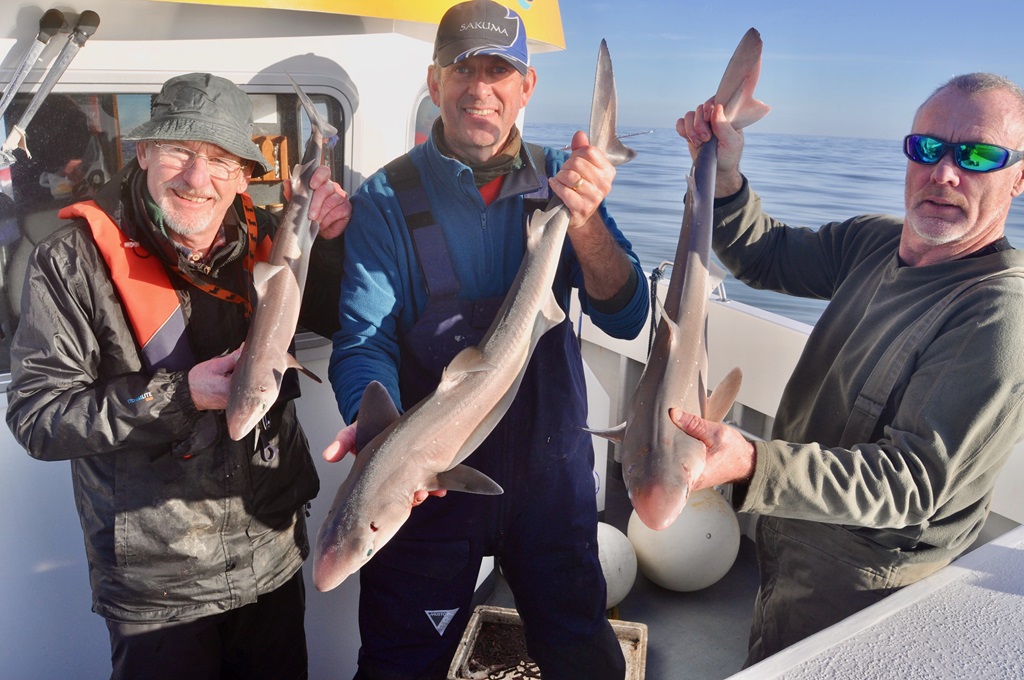
It is essential to ensure that your bait is fishing hard on the bottom, which is where these species mostly feed. In order to achieve this you will need to use either a grip lead, or a sufficiently heavy plain lead. The sort of depths that typically you will be fishing are at the absolute maximum of effective uptide fishing but provided you use a suitable size grip lead, usually something of between 6-8oz, you should still be able to anchor the bait on the seabed.
When fishing in deep water, most anglers consider braid as being essential. Tie a 20ft length of 50-60lb monofilament at the end of the braid to serve as ‘a leader’. This will help protect the relatively thin braid against abrasion on the seabed, which often will consist of rough and broken ground.
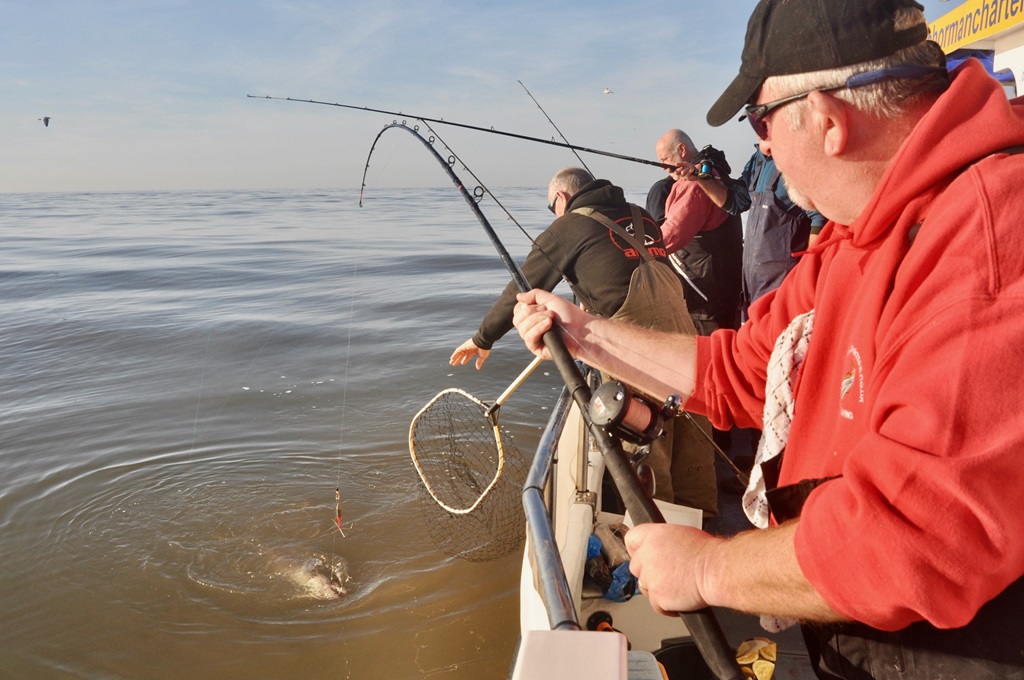
Given the strength of the tides encountered around the Welsh coastline only a few days a month will be suitable for fishing at anchor in such deep water. These are the neap tides, the smallest tides of the month. Forget any idea of fishing the larger springs. Even on the smallest of neap tides you can expect to be fishing in an incredible force of water. On many days it will only be possible to fish these prime deep water marks for a couple of hours either side of either high, or more likely low water slack tide. If you intend fishing from a charter boat demand for the very best tides is high, with anglers booking those dates many months in advance. Obviously it is essential to contact your intended charter skipper as soon as possible in order to secure a suitable day.
The fishing over these deep water marks during mid-winter can be hugely prolific and while they might not be the prettiest of fish, to some degree all of the species you’ll catch are edible. This should in no way been seen as an excuse to fill boxes with dead fish, but of course it is perfectly acceptable to harvest a few fish for the table. Thankfully almost all are as tough as they look, and despite being caught in deep water can be returned with no fear of barotrauma. Given that you will hopefully be releasing the majority of fish you catch I strongly recommend you use bronze, barbless hooks. Not only are these so much easier to remove from fish, but if a fish is deeply hooked you can cut the hook-length as close as possible to the fishes mouth, and eventually it will rust free.
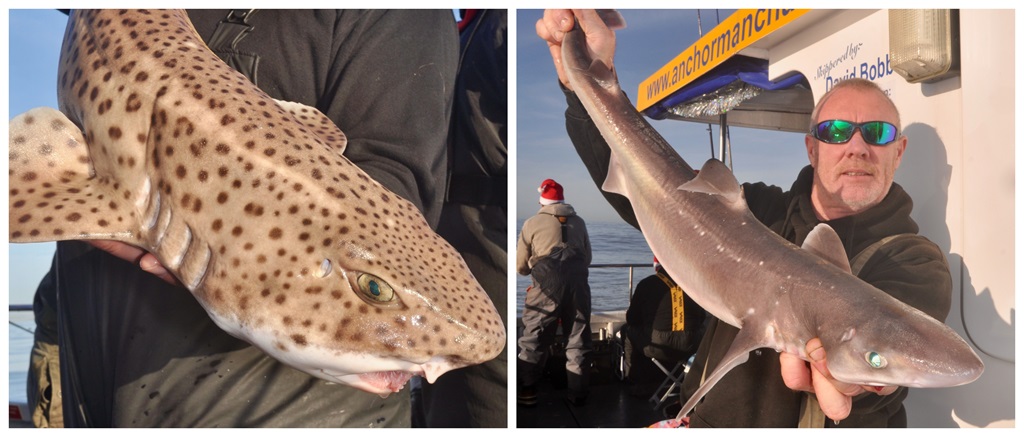
As ugly as these fish might well be they certainly provide a high probability of sport, and at a time of the year when little else is available for the sea angler. So why not book a day with a Welsh Charter and see for yourself just how good the fishing can be. You never know, just like Clive, you might even find yourself smiling!
Words & Images: Dave Lewis
Welsh FISHING RIVERS From The Sky VIDEO
Discover the wild fishing rivers of Wales from above! This cinematic drone montage follows some of Wales’ most breathtaking fishing…
Read More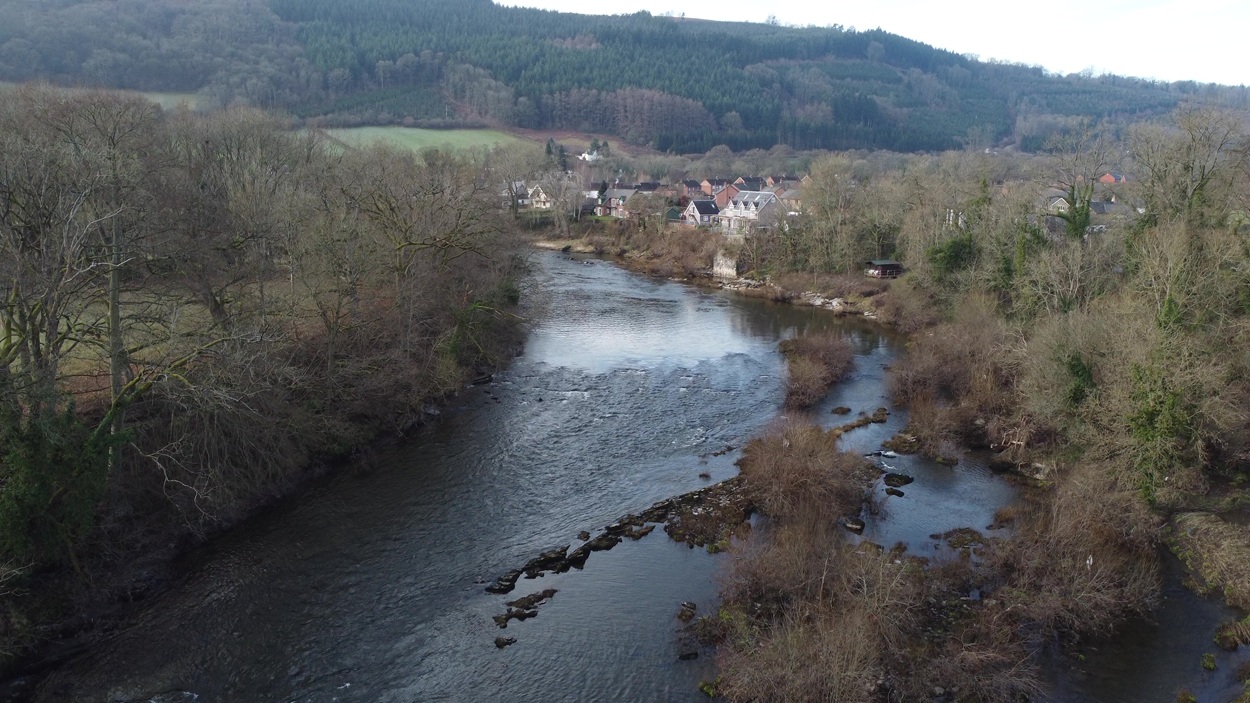
Wye & Usk Foundation Fishing Passport News
The latest newsletter from WUF – with details of fishing opportunities for Wales!Contact The Fishing Passport for more information and…
Read More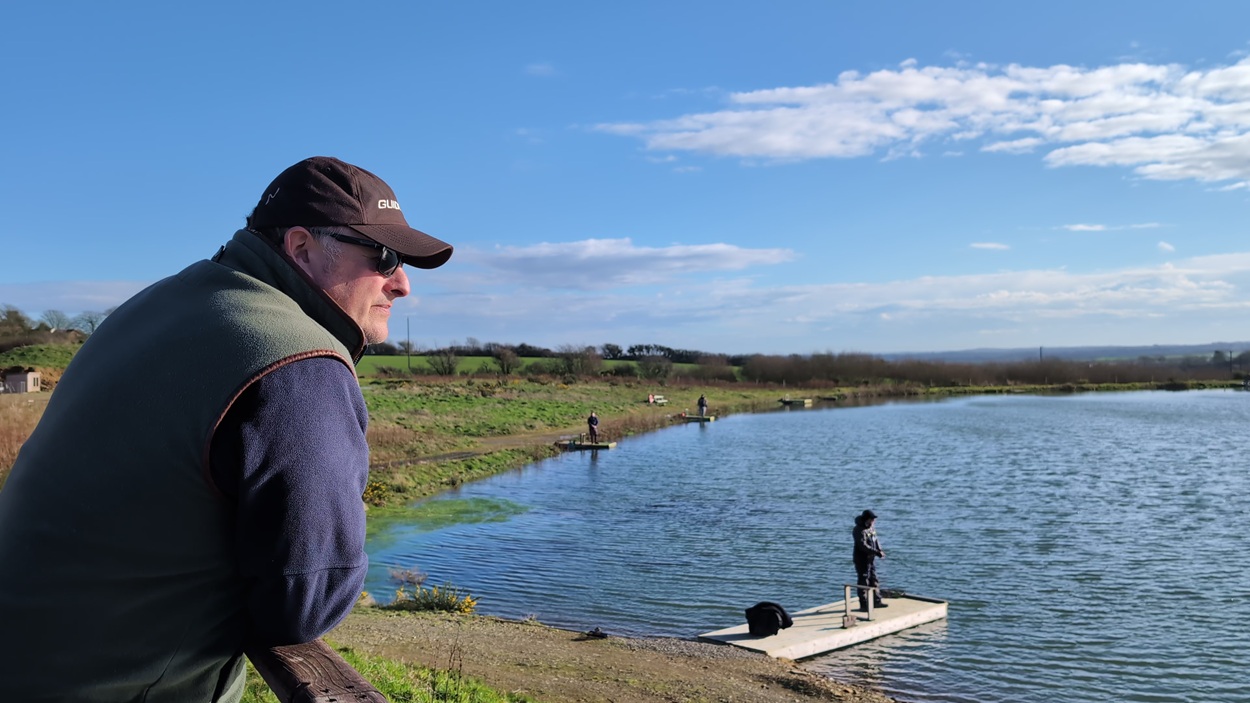
Fishery Profile VIDEO: Foxhill Trout Fishery West Wales
We visit Foxhill Fishery, a trout fly fishing venue near the village of Camrose, just outside Haverfordwest in Pemrokeshire.
Read More
